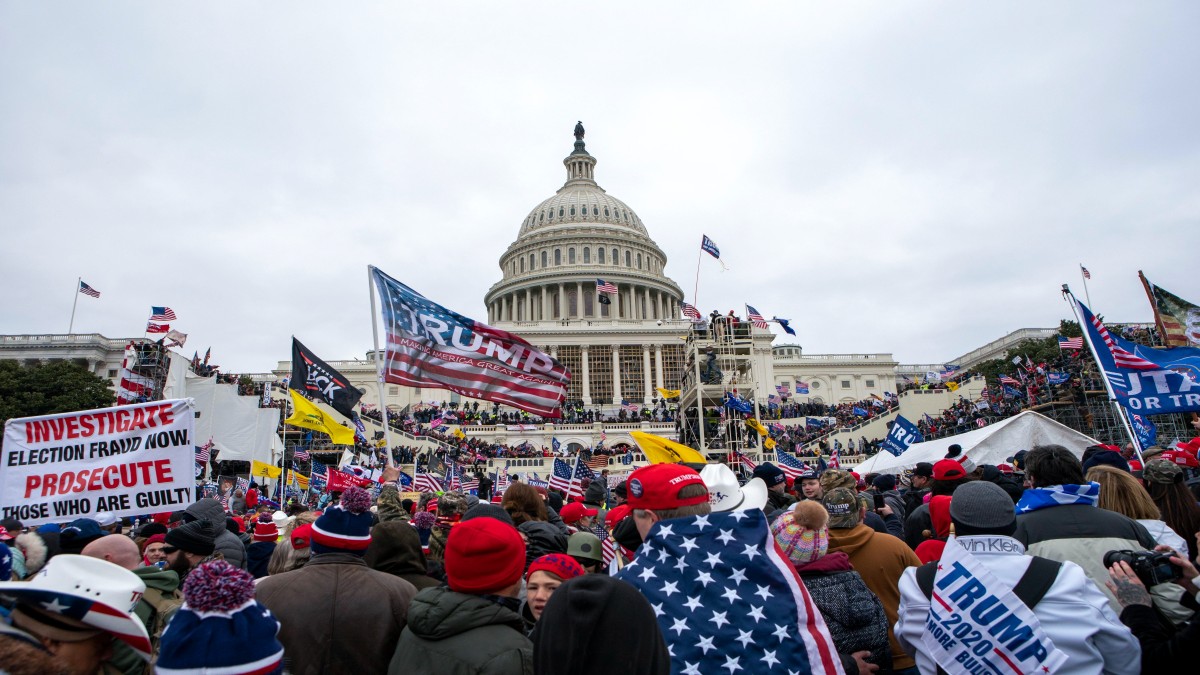As the fourth anniversary of the January 6 attack on the Capitol approaches, lawmakers are bracing for the possibility that President-elect Donald Trump could pardon many of the more than 1,500 people charged for their roles in the violent insurrection.
Trump, who begins his second term on January 20, has repeatedly vowed to issue pardons to those convicted in connection with the riot. “Most likely, I’ll do it very quickly,” he said recently on NBC’s “Meet the Press”. While pledging to act, he also suggested he would evaluate cases individually, saying, “those people have suffered long and hard. And there may be some exceptions to it. I have to look. But, you know, if somebody was radical, crazy.”
The prospect of mass pardons has sparked debate in Congress, particularly as lawmakers gather Monday to certify a presidential election for the first time since the attack temporarily halted the 2021 certification of Joe Biden’s victory.
Republicans divided on pardons
Rep. Marjorie Taylor Greene, a staunch Trump ally, has urged him to pardon all January 6 participants, arguing they have been treated unfairly. “Some of these people have been given prison sentences: 10 years, 18 years and more. I think it’s an injustice. It’s a two-tiered justice system, and it’s time to end it,” Greene said.
However, many Republicans, including some close to Trump, advocate a more measured approach. Rep. Jim Jordan, R-Ohio, said he supports pardons for nonviolent offenders but distinguished them from those who attacked law enforcement. “For people who didn’t commit any violence, I think everyone supports that. I think that makes sense,” Jordan said.
Other Republicans, such as Rep. Gus Bilirakis, R-Fla., and Rep. Dusty Johnson, R-S.D., echoed the call for case-by-case consideration, emphasizing that violent offenders who attacked police or caused extensive damage should face accountability.
Impact Shorts
More ShortsDemocratic lawmakers and police officers oppose pardons
Democrats and law enforcement officials have strongly criticised Trump’s pardon pledge, warning of its implications for the rule of law and national security. Rep. Bennie Thompson, D-Miss., who chaired the House January 6 investigation, condemned the idea, particularly for those convicted of attacking police officers.
“I think anyone who loves peace and security would be offended that you would pardon people who attacked those individuals for doing their jobs,” Thompson said.
The attack left about 140 officers injured in what Matthew Graves, the outgoing US attorney for Washington, DC, described as “likely the largest single day mass assault of law enforcement.”
Capitol Police Sgt. Aquilino Gonell, who retired due to injuries sustained during the attack, also voiced his dismay. “You cannot be pro-police officer and rule of law if you are pardoning people who betrayed that trust, injured police officers and ransacked the Capitol,” Gonell said.
Legal and political ramifications
House Democrats who led Trump’s second impeachment trial and investigated the attack warned of the long-term consequences of pardoning convicted rioters, including members of extremist groups like the Oath Keepers and Proud Boys, who were convicted of seditious conspiracy.
Rep. Jamie Raskin, D-Md., said pardons should require contrition and a demonstration that the individuals no longer pose a threat to public safety. “Anything that happens by these people, in a political context or some other context, will essentially be laid at the doorstep soon-to-be President Donald Trump,” Raskin said.
For many lawmakers, the memories of January 6 remain raw. Rep. Jim Himes, D-Conn., who was trapped in the House gallery as rioters stormed the Capitol, said the prospect of pardons would be “extraordinarily difficult” to accept.
More than 1,250 individuals have pleaded guilty or been convicted in connection with the attack, with over 650 receiving prison sentences ranging from a few days to 22 years. The debate over potential pardons is likely to remain a contentious issue as Trump prepares to re-enter the White House.
With inputs from agencies
)